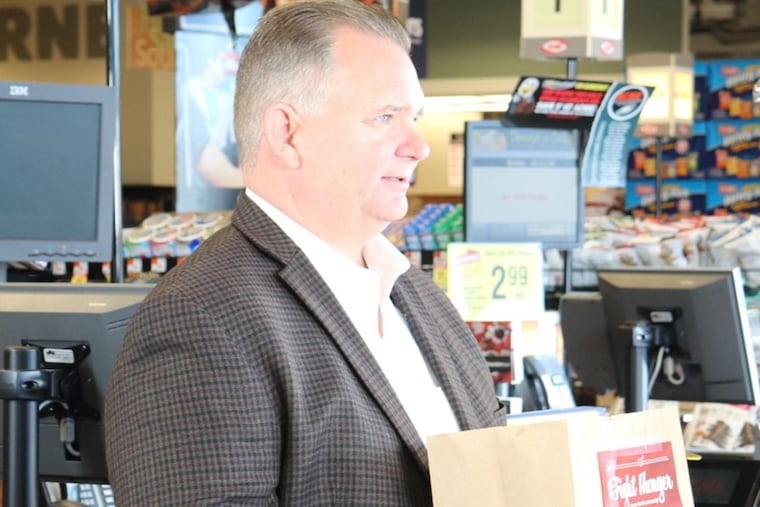Acme provided evidence of soda tax damaging sales — even while the city denied it | Stu Bykofsky
Acme says the beverage tax fell on some 4,000 items in its 16 stores. At Acme stores in the city, soda sales dropped as much as 80 percent. Sales of other items covered by the tax, such as juices, creamers and energy drinks, were down 30 percent and the number of customers declined by 5 percent.

In the ever-fizzy soda war, the Big Boy has suited up and trotted onto the field. The Big Boy is Acme Markets, born in South Philly in 1891.
In January, we heard from ShopRite, which has six stores in Philly. CEO Jeff Brown opened his books for me to prove the sweetened beverage tax was hurting him big time and forced him to close his store in Philadelphia’s Overbrook section.
Big Boy Acme has 16 stores in Philadelphia, more than any other chain, and it, too, is getting clobbered, president Jim Perkins tells me in an exclusive interview.
He didn’t come forward earlier, he says, because his job is to sell groceries, not to get into fights with mayors. He’s an under-the-radar kind of guy.
Two things finally smoked him out.
First, the “significant harm” the soda tax bludgeon has done to his business.
Second, the city’s spin got on his last nerve.
Let’s go there first.
In answering Brown’s complaints about the regressive tax, mayoral spokesperson Mike Dunn said Brown and the soda industry "have yet to present any evidence that the tax has had any impact on sales.”
When he heard that, Perkins felt a little ill, because it is not true.
In May 2017, then-Acme president Dan Croce, legal counsel Dan Donsenbach, and communications manager Danielle D’Elia, met with Deputy Mayor for Policy and Legislation James Engler and Harold Epps of the Department of Commerce. The mayor declined to meet with them, says Perkins, and the mayor’s people “didn’t seem to be interested in what we had to say.”
The Acme Three used a PowerPoint presentation to show the harm caused by the beverage tax that took effect five months earlier, in January 2017.
Dunn says “no data was presented at that meeting,” and at a later gathering with Epps and Commerce officials, data was presented, but Acme would not leave its material, so city officials were "unable to analyze or verify it.” But data was presented.
That data since has been updated, says Perkins, who adds Acme stands ready to present it to the mayor or his office.
Here’s what Acme’s presentation showed: The beverage tax fell on about 4,000 items. In Acme city stores, soda sales dropped as much as 80 percent. Sales of other items covered by the tax, such as juices, creamers and energy drinks, were down 30 percent, and the number of customers declined by 5 percent. Philly stores cut an average of 150 to 200 employee hours per week, resulting in lighter paychecks for employees.
This material was shown to the city, but the city kept talking as if the meeting never happened, Perkins says with annoyance.
Why did the city do that?
To me, it looks like a reprise of that tune from The Wiz, “Don’t Nobody Bring Me No Bad News.”
If reality disagrees with the narrative you have woven, just ignore it.
Just as the city refused to believe Jeff Brown when he said the tax was forcing him to close his store, it was dismissive of what Acme had to say. Don’t Nobody Bring Me No Bad News.
Perkins admits five suburban Acme stores increased sales after the tax was imposed, but says losses at city stores were greater.
So it’s a net loss for Acme, which recently spent millions remodeling seven stores and will do the rest in the near future, Perkins tells me. The Acme commitment to its city of birth continues, even as the mayor treats job-creating businesses, such as Acme and ShopRite, with contempt.